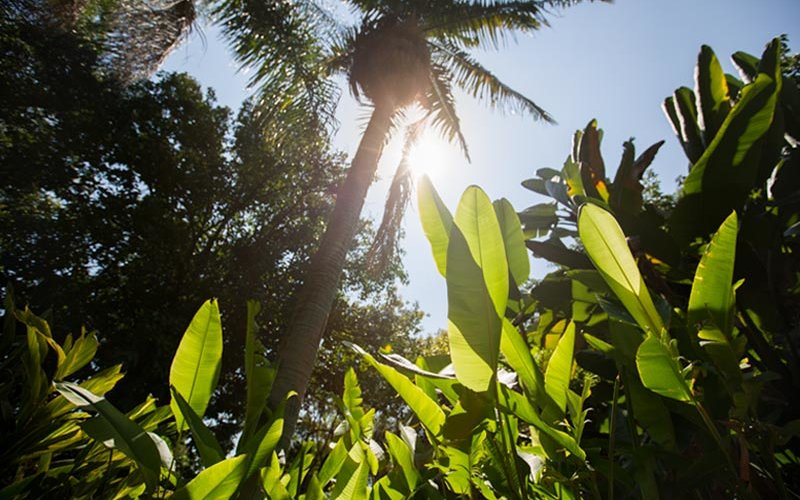
Recognized for its commitment to studying and protecting the world’s flora, the Fullerton Arboretum received ArbNet’s highest level of accreditation in November.
The 26-acre botanical garden — a partnership between Cal State Fullerton and the City of Fullerton spanning nearly four decades — is one of three arboreta in the state of California and one of 21 arboreta in the world to achieve the level IV accreditation.
“Not only does the accreditation demonstrate that the Fullerton Arboretum operates in accordance with the same professional standards as many of the other higher achieving arboreta around the world, but it also presents our arboretum as an institution that is willing and able to collaborate in plant conservation and other botanical research on a global scale,” said Gregory Dyment, director of the Fullerton Arboretum.
ArbNet, an international arboretum accreditation and networking program, has established four levels of accreditation to recognize arboreta at varying degrees of development, capacity and professionalism. The accreditation must be renewed every five years.
According to Dyment, four key factors contributed to the Fullerton Arboretum’s success, including its organizational structure, educational programming, nursery operations and plant collection.
“As part of Cal State University Fullerton, our arboretum collaborates on research with faculty, engages with other institutions on conservation projects and has a curator to maintain plant records and share collections data,” he said. “The Fullerton Arboretum also has an education manager who develops and leads programs for children and adults based on recognized science standards.
“Our vibrant nursery operation has the ability to propagate, conserve and safeguard our collections, as well as other threatened plants,” Dyment continued. “The Fullerton Arboretum’s living collection is home to many important plants, including rare, threatened and endangered species, wild collected specimens and cultivars of historical significance, including our nationally recognized citrus collection.”